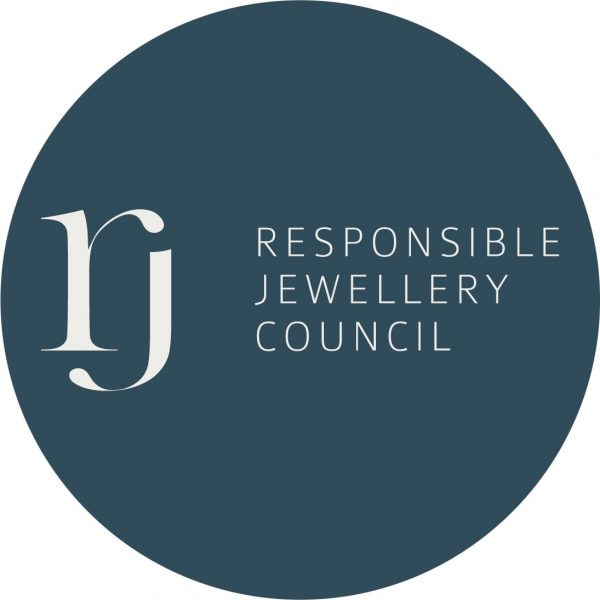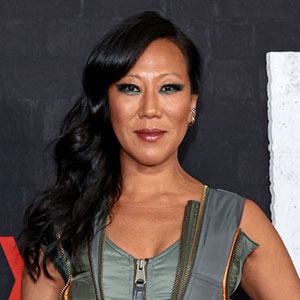
Last week, after the Responsible Jewellery Council (RJC) was hit by a number of high-profile resignations—including executive director Iris Van der Veken—one of its leaders said in an internal meeting it was not in a crisis. When someone says that, you can be pretty sure, there’s a crisis.
On Tuesday, the RJC told its members that John Hall, a veteran of Rio Tinto and Signet, has been named interim CEO to replace Van der Veken.
But there is clearly discontent in the ranks. A few important employees left last week, while others are eyeing the exits. The RJC’s Great Resignation may have begun.
Some of the problems in the group had been brewing for some time, but there had been a general willingness to work through them. It was the issue of whether Alrosa should be suspended from the group which was the last straw.
Let’s compare how the RJC dealt with its crisis with how the Academy of Motion Picture Arts and Sciences handled Will Smith’s now-infamous assault on Chris Rock at the March 27 Academy Awards ceremony.
That, too, was uncharted territory for the Academy. Afterward, it sent out a statement:
Consistent with the Academy’s Standards of Conduct, as well as California law, Mr. Smith is being provided at least 15 days’ notice of a vote regarding his violations and sanctions, and the opportunity to be heard beforehand by means of a written response. At the next board meeting on April 18, the Academy may take any disciplinary action…
Now, as someone who has dabbled in stand-up, I wanted to see Smith get a serious reprimand (though, more importantly, he needs help). Given it sometimes take murderers years to stand trial, I can wait two more weeks before learning his fate.
After Van der Veken resigned, the RJC put out a similarly legalistic statement:
At the start of [the Ukraine] conflict, the RJC Board of Directors, mindful of its fiduciary duties and its need to act with diligence, immediately commenced an arm’s-length, independent, third-party legal assessment. This process was commenced to consider the status of Alrosa as an RJC member, to ensure that the appropriate action taken was done so respecting the principles of natural justice and, importantly, that it was within the powers of the Board.
The RJC appreciates that the pace of this process may be frustrating, but this is an unprecedented situation, which is constantly changing and requires that the time be taken to ensure that due process is followed as exhaustively as possible.
Now, due process is not always a popular concept these days, but I’m a big believer in it, and I’m glad the RJC followed it here. In this new social media–driven news cycle, we’re used to quick action. So many times, an unflattering report about a person appears, a law firm or human resources is brought in, and boom, the person’s gone, usually within days. Some wanted quick action here too. Wrote Cristina Villegas of Pact: “The [RJC] should have suspended [Alrosa’s] membership immediately.”
But given all the conflicts of interest here—RJC’s chairman is Signet exec David Bouffard, and Signet has been (and may one day again be) an Alrosa customer—the RJC made the right move in enlisting outsiders, even if lawyers can sometimes work excruciatingly slowly.
Yet, there’s a difference—and it’s a pretty big one—between how the RJC and the Academy of Motion Picture Arts and Sciences handled the situations: The Academy let the world know that it was looking into the situation. That likely prompted Will Smith to preemptively resign.
The RJC waited until after Van der Veken—as well as Pandora, Richemont, and Kering—stepped down before making its statement. It’s likely no coincidence that Alrosa suspended its membership the next day.
The people inside the group knew a law firm had been called in. It would have been nice for us outsiders to hear that as well. That would have showed the RJC was taking this seriously. Instead, it went quiet. There were suspicions that the board was dragging its feet, given all the commercial ties between certain directors and Alrosa. Some staff members and directors clashed, and the resulting disputes sometimes played out in public.
Clearly, this was an unusual situation—since the issue was not with Alrosa, but its one-third owner, the Russian government. But, as I argued on a recent JCK podcast, ownership matters, as we saw in the case of de Grisogono.
The RJC statement said, had it not followed its bylaws, it would have faced “legal jeopardy.” Having not seen the RJC’s report from the law firm—its reported recommendation was that more due process was needed before action could be taken—it’s hard to know how much legal trouble the RJC faced.
Consider: Alrosa’s vice president resigned from his RJC position shortly after the invasion began, and Alrosa and its reps have also been ejected—or self-suspended—from most other industry groups. That, to me, shows that Alrosa realized the conduct of its one-third owner was incompatible with most notions of social responsibility.
Furthermore, it’s hard to imagine Alrosa suing, especially once the company was under U.K. sanctions. That makes it hard to get a law firm. It may have even made the decision to suspend Alrosa inevitable, given the RJC is U.K. based.
Which points to an issue that has dogged RJC from the beginning. It’s an organization that measures companies against a list of standards. That’s it. Comply with those and you’re good. It’s just like if you comply with the law, you won’t get arrested. You can still be a terrible person, but the cops won’t come after you.
When the RJC was first conceived, I remember the first CEO making his case to the trade, and he was asked, over and over, what happens when a company, or one of its employees, is criminally charged? The group still doesn’t have a good answer to that.
After all, just because someone is charged, it doesn’t mean they’re guilty. (Though in most organizations, if someone is indicted, they usually resign.) And even if they’re found guilty, sometimes the companies just change ownership—on paper, at least.
Even now, there are controversial certified RJC members. The Australian publication Jeweller reported that a local retailer was using what it termed “misleading” terminology for lab-grown diamonds. It asked the RJC about if it had suspended many member. It didn’t get a reply.
Perhaps that was settled behind the scenes. (The retailer changed its wording.) But it’s a tough issue. Suspension is a strong step. And, as it turns out, the RJC’s bylaws make it rather hard to do.
As RJC’s North American trade lead Brad Brooks-Rubin pointed out a few weeks ago, the group has language that allows for a member to be suspended—pending a vote of the executive committee (once four people, now two)—if it brings the group into “material disrepute.” The minute the first tweets started appearing calling out Alrosa’s participation in RJC, that could have been invoked.
As Brooks-Rubin put it: “I cannot possibly imagine there is a U.K. court that would ever hold the RJC or the individual directors liable in a case where the owners of a member are engaged in a war and committing war crimes about which the [International Criminal Court] has opened an investigation.”
Alrosa could have also been urged to self-suspend, like it ultimately did.
Lawyers can be maddeningly cautious. Still, it seemed like this could have been handled far quicker and easier.
The RJC is obviously not the only group that hasn’t covered itself in glory since the invasion began. The Antwerp World Diamond Centre may have a point that Russian goods will just go to Dubai, but that argument falls flat when images of atrocities appear daily on our TVs, phones, and laptops. Antwerp will never win a race to the bottom with its Middle East rival and needs to start positioning itself as the center with truly higher standards. (Plus, the grapevine says, most Russian goods are now heading to Dubai anyway.)
Odder still, the usually-quick-to-condemn Kimberley Process Civil Society Coalition’s (KPCSC) statement on Russia was extremely weak. Its reasoning behind not bringing the issue in front of the KP—that it’s futile—is sound. But apart from a report from one member, the group that wants to “talk about diamonds” seemingly wants to avoid the industry’s No. 1 issue.
Mind you, I don’t want the KPCSC destroyed, nor do I think anyone should resign in protest over its statement. (Not that anyone has.) If anything, I’d like to see the KPCSC be a stronger presence in our trade, albeit with clearer messaging.
Likewise, the RJC may have fouled up here, but let’s not pronounce it dead. Just like the Kimberley Process is, for all its flaws, the basis of so many industry initiatives, so is the RJC.
The RJC needs a reset. It should rehire Van der Veken, who was an inspiring, extremely hardworking leader who had strong admirers, not just within her staff, but in the trade and NGO community. She built on everything that came before and took the group to new heights in just three years. And she was principled—it’s not often someone resigns in protest.
The RJC is in a crisis, but it’s nothing that can’t be fixed, especially now that Alrosa’s gone, and if Van der Veken and the rest of the departed staff return. I don’t mind the heavy industry representation on the board, but perhaps it’s time to have more independent voices there, or at least ones that don’t have commercial relationships with other board members.
The industry needs the RJC. All these companies that have left will now be forced to conduct their own audits and develop their own standards, which may be stronger or weaker than the RJC’s, and could vary country by country. One of the reasons the RJC was formed was “audit fatigue”—the idea that factories didn’t want to deal with endless people with notepads asking about safety.
It’s taken the RJC 15 years to get where it is. It’s one of the foundations of the industry’s sustainability efforts. It’s taken a leadership role in meeting the United Nations’ sustainable development goals. It’s even created offshoots.
Other options may be available—like getting outside companies, such as SCS Global Services—to conduct audits. Yet, many of SCS’ standards are based on the RJC’s.
There’s been a lot of talk lately about what responsibility means. To me, it means doing the right thing. Here, that means fixing, but not abandoning, the RJC. It was caught in an unprecedented crisis. It may not have handled this situation all that deftly, but then again, crises usually aren’t handled well.
The RJC has done some truly good work—and has the potential to do a lot more. It needs to change, so it doesn’t get in this situation again. But it shouldn’t be cast aside and left to languish. That would be truly irresponsible.
(Image courtesy of the Responsible Jewellery Council)
- Subscribe to the JCK News Daily
- Subscribe to the JCK Special Report
- Follow JCK on Instagram: @jckmagazine
- Follow JCK on X: @jckmagazine
- Follow JCK on Facebook: @jckmagazine





